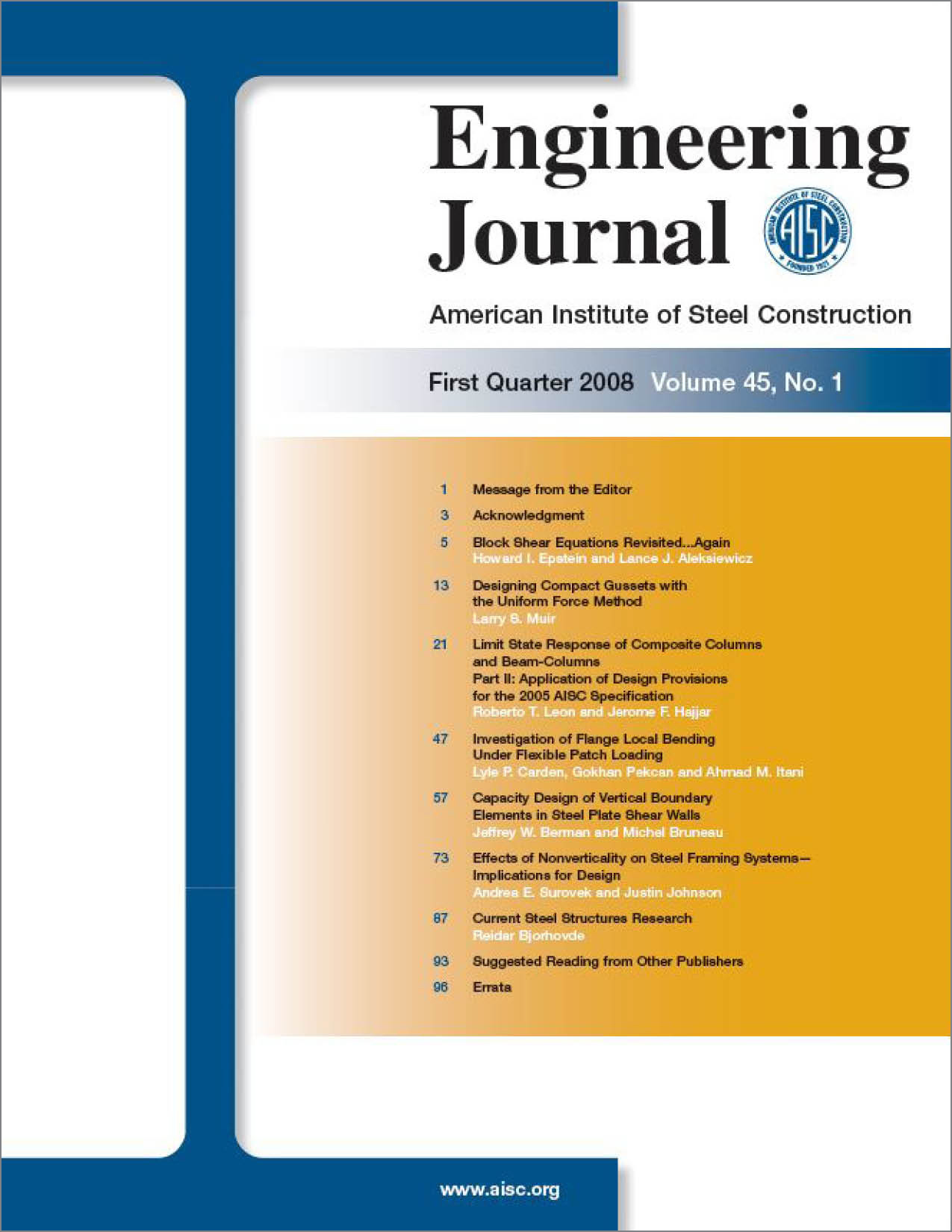Capacity Design of Vertical Boundary Elements in Steel Plate Shear Walls
DOI:
https://doi.org/10.62913/engj.v45i1.925Keywords:
Seismic design, lateral systems, AnalysisAbstract
Consistent with capacity design principles, the 2005 AISC Seismic Provisions require that the vertical and horizontal boundary elements of steel plate shear walls be designed to remain essentially elastic while the web plates yield under seismic loading. However, determination of the design loads for vertical boundary elements to reliably achieve capacity design is difficult and a reasonably accurate approximate procedure is needed. This paper presents such a procedure for determining those design loads for the vertical boundary elements of steel plate shear walls so that the desired component yielding sequence is achieved. The procedure combines an assumed plastic collapse mechanism with a linear model of a vertical boundary element to determine the maximum axial forces, shear forces, and moments for vertical boundary elements considering fully yielded web plates and horizontal boundary elements hinging at their ends. Two methods for capacity design given in the commentary of the seismic provisions are also reviewed and their shortcomings are identified. Then, design loads for the vertical boundary elements of two different steel plate shear walls are determined with the proposed procedure and the two current procedures. Results are compared with nonlinear static analysis results. The proposed procedure is shown to give VBE design loads that are significantly closer to the nonlinear static analysis results than the two current procedures.

